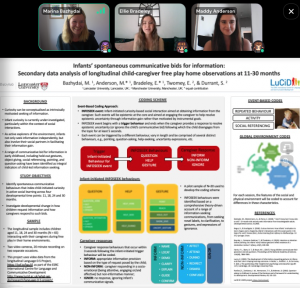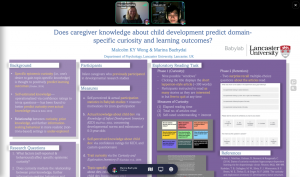We are excited to announce that Didar’s first PhD paper has received an in-principle acceptance in the journal Developmental Science to examine toddlers’ information giving in an interactive social learning paradigm. Data collection is currently under way! You can learn more about the project here: https://osf.io/tvfqg/
Karadag, D., Bazhydai, M., & Westermann, G. (Stage 1 In-Principle Acceptance; December 2021). Do toddlers preferentially transmit generalizable information? A Registered Report. Developmental Science.
Abstract
Children actively and selectively transmit information to others based on the type of information and the context during learning. Four- to 7-year-old children preferentially transmit generalizable information in teaching-like contexts. Although 2-year-old children are able to distinguish between generalizable and non-generalizable information, it is not known whether they likewise transmit generalizable information selectively. We designed a behavioral study to address this question. Two-year-old children will be presented with three novel boxes, identical except their color. In each box, one of two equally salient actions will lead to a generalizable outcome (e.g., playing a (different) tune in each box), whereas the other will lead to a non-generalizable outcome (e.g., turning on a light, vibrating the box, or making a noise). In a discovery phase, children will have a chance to discover the functions of each box presented one-by-one. Then, in an exploration phase, they will be given the opportunity to independently explore all three boxes presented together. Finally, in a transmission phase, an ignorant recipient will enter the room and ask the child to show them how these toys work. We will measure whether children will preferentially transmit either generalizable or non-generalizable information when they are asked to demonstrate the function of the toys to a naïve adult. The findings of this study will not only inform us about toddlers’ selectivity in transmitting information but also about the development of sensitivity to information generalizability.



